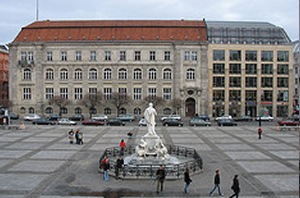
By way of a deal reached Nov. 17, the European Union is expected to enact laws to set energy efficiency standards for all public buildings by 2018 and thereafter all commercial buildings and homes. Converting existing buildings to near-zero energy standards is a major part of negotiations that took place between European Parliament and Council in hopes of using the public sector as an example for the rest of Europe’s buildings and homes.
All new buildings built after 2020 must rely mostly on renewable energy under this plan. By mid-2011, EU Member States must identify financial and other incentives for the transition, such as technical assistance, subsidies, loan schemes and low interest loans.
The legislation paves the way for existing buildings undertake renovations to improve their energy performance and promotes the installation of smart meters and replacement of existing heating, hot-water plumbing and air-conditioning with high-efficiency alternatives such as heat pumps or renewable based systems.
A certification system will also be developed under the initiative to measure energy performance of buildings. Certificates will be required for any buildings constructed, sold or rented out to a new tenant, and also for buildings where a portion will be occupied by a public authority and frequently visited by the public.
As the legislation itself explains, energy use in buildings account for 40 percent of the total energy consumption in the EU. Addressing energy consumption in buildings serves as a way to reduce the EU’s energy dependency and greenhouse gas emissions, it says.
“Together with an increased use of energy from renewable sources, measures taken to reduce energy consumption in the EU would allow the EU to comply with the Kyoto Protocol to the United Nations Framework Convention on Climate Change (UNFCCC), its long term commitment to maintain the global temperature rise below 2 °C, and its commitment to reduce by 2020, overall greenhouse gas emissions by at least 20% below 1990 levels, and by 30% in the event of an international agreement,” the legislation states.
Furthermore, reducing energy consumption and ramping up implementation of renewable sources of energy serve to promote “security of energy supply, technological developments and in creating opportunities for employment and regional development, in particular in rural areas,” it notes.
The compromise text agreed on by the Parliament and Council negotiators must be formally approved by the Council before the full Parliament gives its final endorsement in early 2010. Once adopted, Member States will have two years to comply with the new directive.

